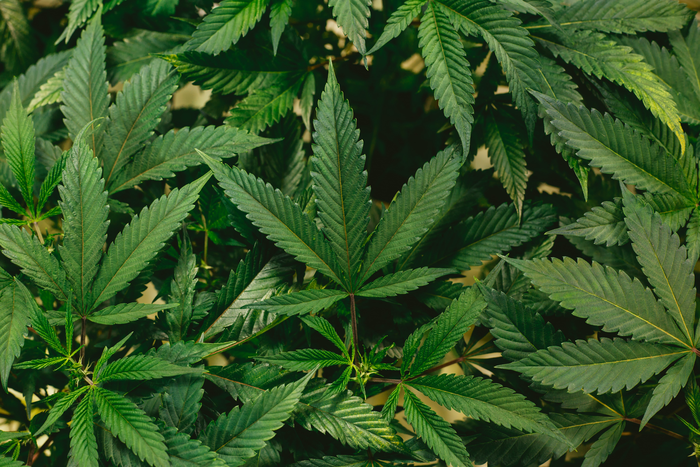A survey of veterinarians in the U.S. and Canada highlights mounting cases of cannabis poisoning among pets and sheds new light on symptoms, treatments, and outcomes. Richard Quansah Amissah of the Ontario Veterinary College at the University of Guelph in Ontario, Canada, and colleagues present these findings in the open-access journal PLOS ONE on April 20, 2022.

Credit: Jeff W, Unsplash, CC0 (https://creativecommons.org/publicdomain/zero/1.0/)
A survey of veterinarians in the U.S. and Canada highlights mounting cases of cannabis poisoning among pets and sheds new light on symptoms, treatments, and outcomes. Richard Quansah Amissah of the Ontario Veterinary College at the University of Guelph in Ontario, Canada, and colleagues present these findings in the open-access journal PLOS ONE on April 20, 2022.
Pets that are exposed to cannabis, most often by ingestion, may experience symptoms of cannabis poisoning—also known as cannabis-induced toxicosis—with varying degrees of severity. While prior evidence suggests that cases of cannabis poisoning among pets are increasing, the actual magnitude of the problem, including typical outcomes for pets, has been unclear.
To improve understanding of cannabis poisoning in pets, Amissah and colleagues analyzed survey data from 251 veterinarians based in Canada or the U.S. Conducted in 2021; the survey included questions about cannabis poisoning cases encountered by participants over several previous years.
Statistical analysis of the survey responses showed that the number of cannabis poisoning cases jumped significantly in both the U.S. and Canada following the 2018 legalization of cannabis in Canada. Unattended ingestion of cannabis edibles was the most frequent cause of poisoning, but it was unclear what proportion of cannabis products had been obtained for human consumption versus medicinal consumption by pets. The authors note that the post-legalization boost could be explained by increased cannabis use, but that increased reporting may have contributed as well.
Cannabis poisoning was most frequently seen in dogs, but cases were also reported in cats, iguanas, ferrets, horses, and cockatoos. While most cases were benign, observed symptoms—seen primarily in dogs—included urinary incontinence, disorientation, and abnormally slow heart rate. Most animals were treated with outpatient monitoring, and nearly all animals recovered completely.
In a small number of cases, veterinarians reported that pets had died due to cannabis poisoning, though the researchers note that other potential causes, such as underlying conditions, could not be ruled out in the study. With use of cannabis products continuing to rise, they call for additional research into the effects of cannabis on pets to help inform veterinary efforts and policies to keep pets healthy.
The authors add: “This is an important topic to study in the light of recent legalization of cannabis in Canada and across multiple states. In order to understand the mechanisms underlying cannabis-induced toxicosis in pets, and to develop treatments for it, we need to first understand what it looks like; this is what we had hoped to accomplish with this survey, and believe that these findings will help us get a better handle on this under-studied topic.”
#####
In your coverage please use this URL to provide access to the freely available article in PLOS ONE: https://journals.plos.org/plosone/article?id=10.1371/journal.pone.0261909
Citation: Amissah RQ, Vogt NA, Chen C, Urban K, Khokhar J (2022) Prevalence and characteristics of cannabis-induced toxicoses in pets: Results from a survey of veterinarians in North America. PLoS ONE 17(4): e0261909. https://doi.org/10.1371/journal.pone.0261909
Author Countries: Canada
Funding: This research was funded by a Natural Sciences and Engineering Research Council Alliance Grant (ALLRP 549529 to JYK; https://www.nserccrsng.gc.ca/innovate-innover/alliance-alliance/index_eng.asp) and a MITACS Accelerate Fellowship (IT27597 to RQA and JYK; https://www.mitacs.ca/en/programs/accelerate/fellowship) in partnership with Avicanna Inc. The funders had no role in the design, data collection and analysis, decision to publish, or preparation of the manuscript.
Journal
PLoS ONE
DOI
10.1371/journal.pone.0261909
Method of Research
Survey
Subject of Research
Animals
Article Title
Prevalence and characteristics of cannabis-induced toxicoses in pets: Results from a survey of veterinarians in North America
Article Publication Date
20-Apr-2022
COI Statement
Dr. Urban is an employee of Avicanna Inc., during which time she has received stock options. Avicanna Inc. did not influence the design, conduct or interpretation of the data derived from this study. This does not alter the authors’ adherence to PLOS One policies on sharing data and materials. None of the other authors have competing interests.




